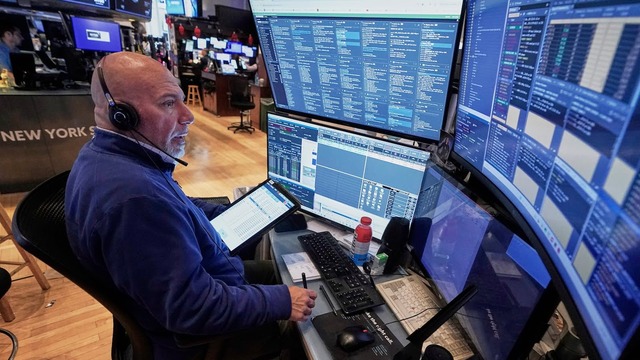
pixhook/Getty, mbbirdy/Getty, Tyler Le/BI
Wall Street analysts have long argued that a record $6.9 trillion in money market funds could fuel the next stock market surge. The idea is simple: investors holding cash will jump in once stock prices dip, preventing any prolonged decline. However, this assumption may not hold.
Cash Reserves Are About Optimization, Not Investment
A key flaw in this bullish theory is that most of this cash isn’t being held as a safety net for stock investments. Instead, investors are shifting money from low-yield checking accounts to money market funds to take advantage of higher interest rates.
Jay Hatfield, CEO of Infrastructure Capital Advisors, points out that the M1 money supply, which includes checking accounts but not money market funds, has dropped by over $2 trillion. This suggests that the increase in money market funds is mainly a strategy to optimize cash returns rather than an effort to reduce investment risks.
As long as these funds continue offering high yields, investors may have little reason to shift back to stocks. Even if yields fall, a declining economy could discourage investors from moving into riskier assets.
$7 Trillion Isn’t as Significant as It Seems
While $7 trillion may sound like an enormous sum, its impact is less impressive when compared to the size of the stock market.
Larry Tentarelli, chief technical strategist at Blue Chip Daily Trend Report, highlights that money market cash has been shrinking as a percentage of the S&P 500’s total market value. Even as the dollar amount hits record highs, its relative importance to the stock market has diminished.
Tentarelli dismisses the idea that this cash reserve will drive a market rally or signal investor fear. He believes it's not a reliable indicator of future stock market moves.
Some Investors Are Waiting for the Right Moment
While many investors are focused on optimizing cash returns, some are still holding reserves for the right buying opportunity.
Retail investor Ben Hunt sees the market as overvalued and expects a correction. He’s increasing his cash position to 50% of his portfolio, up from 30%, and planning to reinvest when stock prices drop significantly.
Yet, so far, few buyers see a bargain. The S&P 500 and Nasdaq 100 have fallen 4.5% and 7.5% since mid-February, with no strong rebound in sight. Concerns over slowing economic growth continue to weigh on the market.















